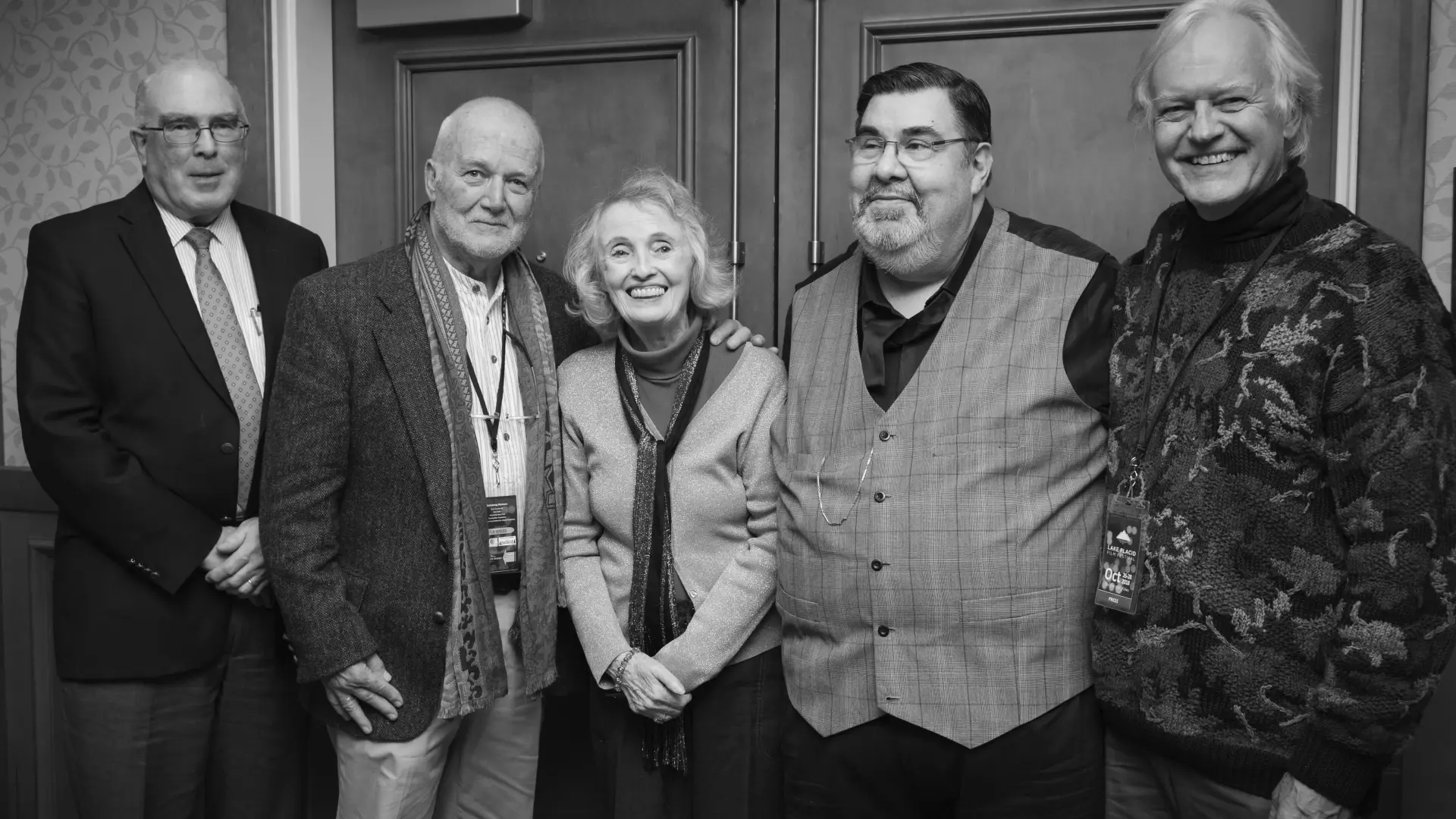
Writer and Adirondack local Russell Banks is known for his empathetic, emotionally complex novels portraying rural life, like The Sweet Hereafter and Affliction, both adapted to screenplays. He has had a prolific career as a writer and a professor at such schools as Princeton, and has made the Adirondacks his home. His love of film and the Adirondacks led him to become a pioneering founder of the Lake Placid Film Festival, which is now a five day celebration filled with panels, parties, and of course, great films that you can’t see anywhere else in the region. Banks will be honored for his contributions to the festival at this year’s Tribute Gala which kicks off the festival in October.
I spoke to Banks on the phone about his role in the Lake Placid Film Festival as it approaches its nineteenth year. During our discussion, we talked about the early days of the festival, the pleasure of seeing a good movie on the big screen, and Banks’ relationship to the Adirondacks.
SA: What is your relationship to the Lake Placid Film Festival?
RB: It’s evolved over the years. I was one of the initiators of it way back when, 19 years ago. It grew out of the screening of a film adaptation of one of my novels called The Sweet Hereafter made by Canadian director Atom Egoyan. Atom agreed to do a premier of the film in Lake Placid at the lovely little Palace Theatre downtown. It was in the middle of the winter and so many people came out to see it. It was a kind of a celebratory local event. It was significant enough that several of us here — Naj Wikoff, Kathleen Carroll, and I — said it would be fun and that this would be a great place to have a little film festival. We can do it! There’s enough interest and people here who care about film.
[The Sweet Hereafter] is a serious film. It went on to be very successful. It was nominated for Academy Awards and won at Cannes. We could do serious films here, have panels, make an educational aspect to it, and bring in filmmakers, actors, and screenwriters and have a really good time. And so we did. That was the beginning. Kathleen, Naj, and I then brought Nelson Page in and a few other people, all working through local businesses and institutions. But, most importantly the Palace Theatre hosted us. They have three screens and then we added a screen over at Lake Placid Center for the Arts. We had the first year the following June and brought people like Atom Egoyan and Paul Schrader who brought in other people. Martin Scorsese came. Norman Jewison came. Some of the great filmmakers of our time showed up. It really took off from there.
We created a board and I acted with Kathleen Carroll as a creative advisor. Our role was to find the films and use our Rolodex to call and locate friends, associates, and colleagues in the film business and talk them into coming up to show their films here. Over the years I stayed involved in that capacity for about ten years or so. Then I was too busy and had to do my own writing so I pulled back and took on a more informal capacity as a creative advisor, but I have stayed attached to it ever since.
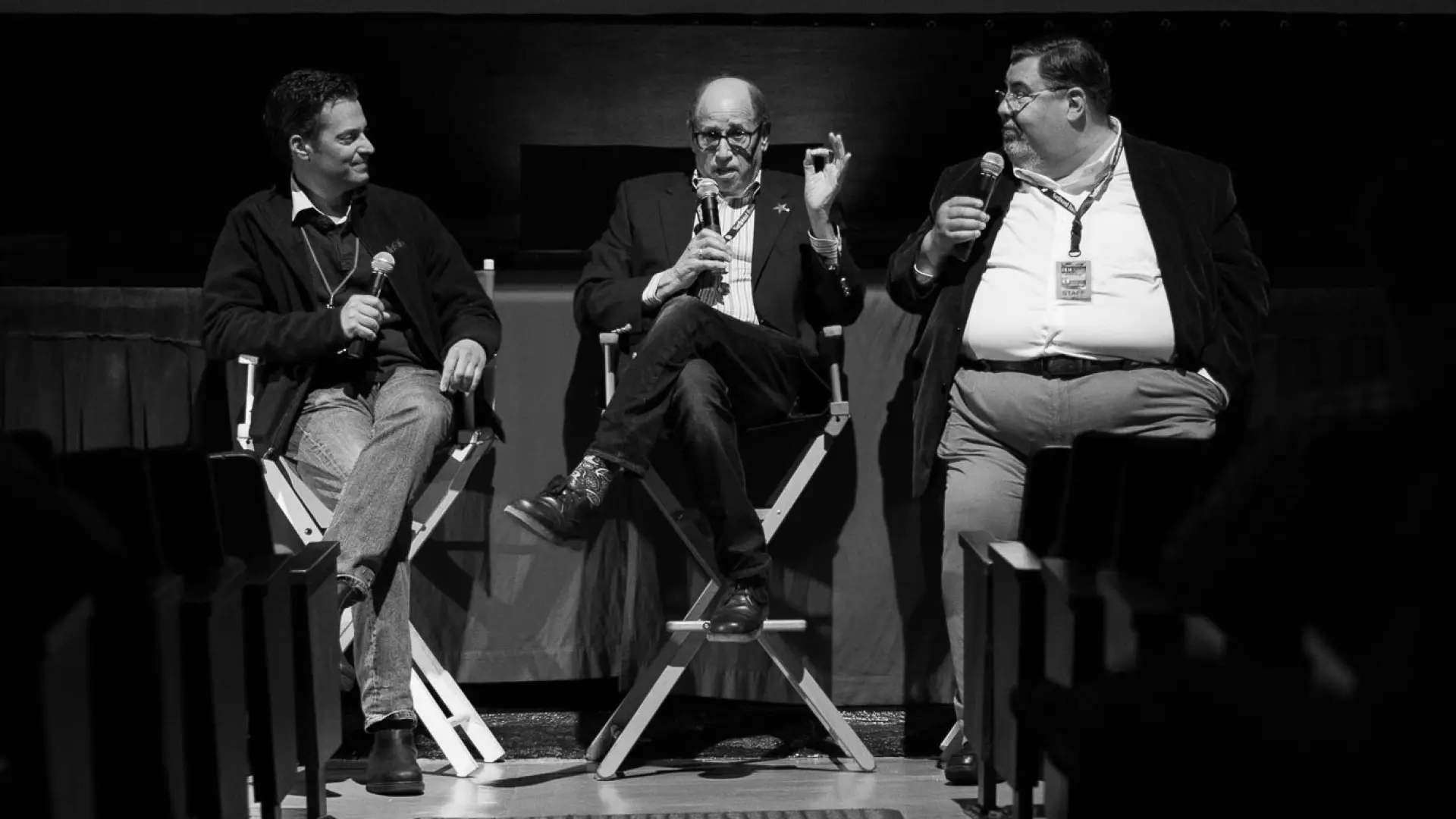
SA: What do you think this festival has contributed to the Adirondack region over the years?
RB: A number of important things. One is that we have introduced to the region and to the people of the region the work and personalities, and the physical and intellectual presence, of serious filmmakers and films they would not have seen otherwise or have heard discuss their work, up close and personal.
I have been to several film festivals and served on juries — at Sundance and elsewhere — and you don’t get to be up close and personal with the people there who you want to talk to and to sit down and have a coffee with. That was possible here, partly due to the size. Lake Placid is small enough and when people got here that was the atmosphere that we all tried to create — informal, personal, and casual. You might have Willem Dafoe walking down Main Street but it wasn’t any kind of big deal, and that was great fun. It was important, useful, and educational for local folks and [those who] came from very far away to attend.
Another thing we did, and have continued to do, was try to bring and engage young filmmakers — students and beginning filmmakers — through panel discussions with older, more established figures. We also had a number of colleges bring a team and they would have 48 hours to make their own film. It was a contest. It was very popular and engaged college kids from as far away as Emerson in Boston, New York City, and Concordia in Montreal all sent teams down at one time. Then St. Lawrence and University of Vermont in Burlington did so. There was this outreach towards youth and the young filmmakers that tend to work in isolation, especially if you are in a college that is not Manhattan or Los Angeles. [This] was an important thing we brought over the years to the region.
Then, there’s how [the festival] affects the world on the outside. It makes [the place] visible. Lake Placid, of course, is mainly known and visible to the outside world because of the Olympics and the sports events that take place here, and not because of the arts that take place. But, there is a tremendous amount of art that comes out of this region and a tremendous amount of interest and involvement with the arts. This event put a focus on the cinematic aspects of that. We tend to look at other places, like Woodstock or even Burlington and Brattleboro, as though there’s a lot of arts going on down over there. Well, there’s a lot of arts going on here too, and it doesn't quite get the same amount of attention because we have the glaring light of the Olympics that kind of deflects from it.
There was an economic impact [of the festival] too because a lot of people were coming into the town from elsewhere and staying over for a few days who might not otherwise come here, who would have gone to Woodstock to that festival, or would have gone somewhere else rather than all the way up here. So, there was an economic benefit to it for the town. Restaurants and hotels were filled.
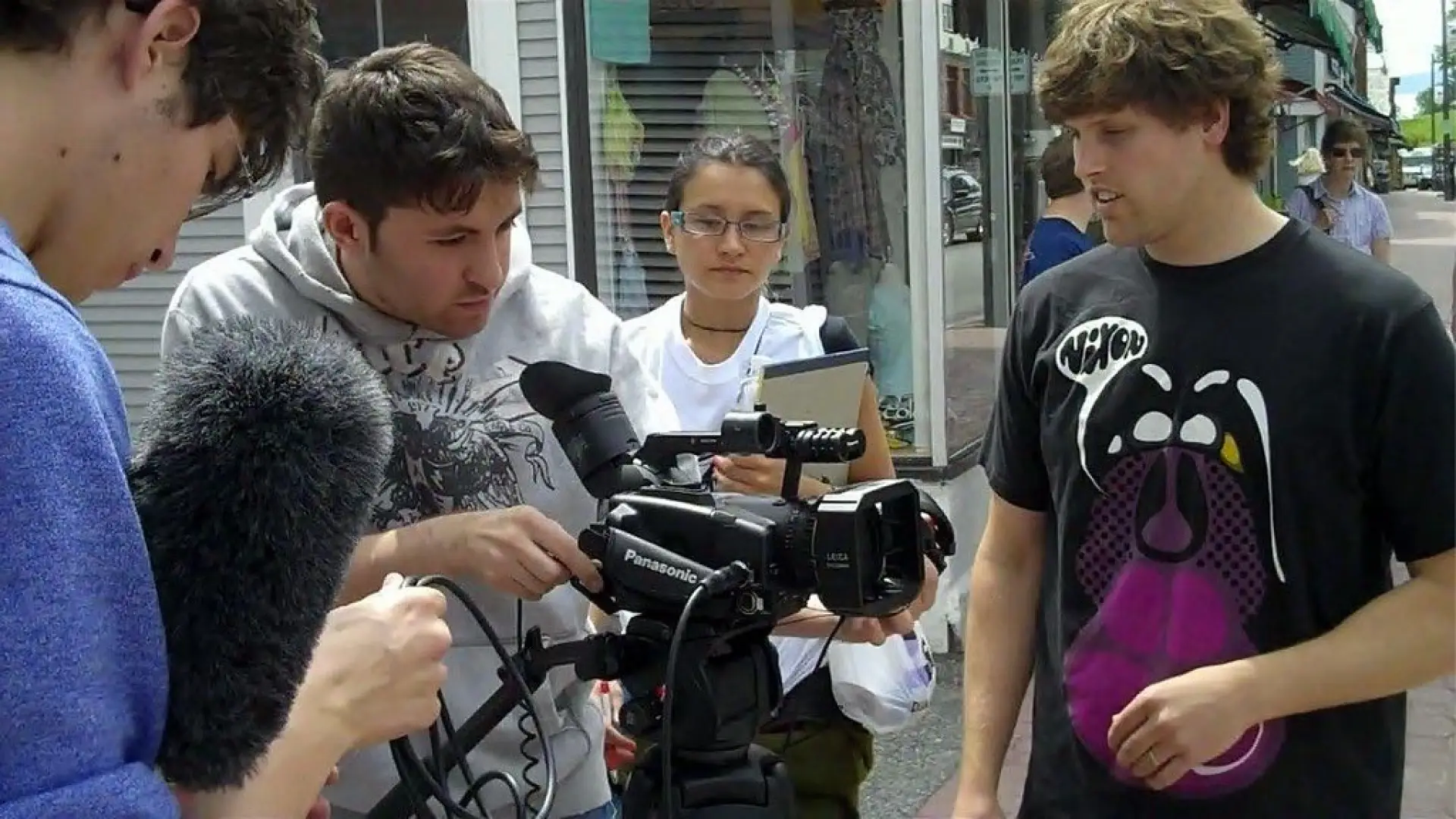
SA: What are your favorite moments/stories that stand out to you from throughout the years?
RB: There are lots of them. It’s a kaleidoscope of memories and images. One of the things that was so satisfying for me personally — because I wrote a novel based on the life of John Brown and the John Brown Farm is right here in North Elba — was when Martin Scorsese came up to spend the weekend. We got talking about John Brown and he knew my novel. He had read it, in fact, and was really fascinated by it. He said to me, “What do you mean, John Brown’s buried right here?” I said, “Yeah, you want to know where John Brown’s body lies moldering; it lies moldering in North Elba, New York!”
He said, “I want to see it! I want to go there!” So, he had a car take us over to John Brown’s farm and gravesite. That was one of the most pleasant and interesting afternoons in my life, really. I was walking through the farm with Martin Scorsese and his rat-a-tat-tat questioning about Brown, and the people with him, and why they were all buried here, and how long had he lived here. Luckily, I had the answers to most of his questions. It was a great little connection. It was important for him and certainly important for me. It connected an important aspect of our little town to the great big larger world of Martin Scorsese. Things like that were fun and enjoyable.
I remember going with Willem Dafoe into a local restaurant and there was a huge crowd, but nobody recognized him if you can believe that. He’s pretty recognizable, but except for one waitress who had such a crush on him. It was so sweet and funny because he’s a very gracious man. She could barely speak, but she managed to find us a table in this huge crowd and got us in the corner and took great care of it. I saw that kind of thing happening over and over again because everybody who came up here was really gracious to the local folks who were sometimes a little in awe of them, as people do around celebrities and movie stars. It’s like running into a angel or something.
There were some great films. We always had a silent film which was a wonderful aspect to the festival. We would sit out at the Boathouse on Mirror Lake and we had opening receptions that were always really enjoyable and pleasant if the weather was good — and we were lucky because it usually was. We would drink wine and stand out there on the pier and mingle with the folks who made the movies we were about to see, and that’s always fun.
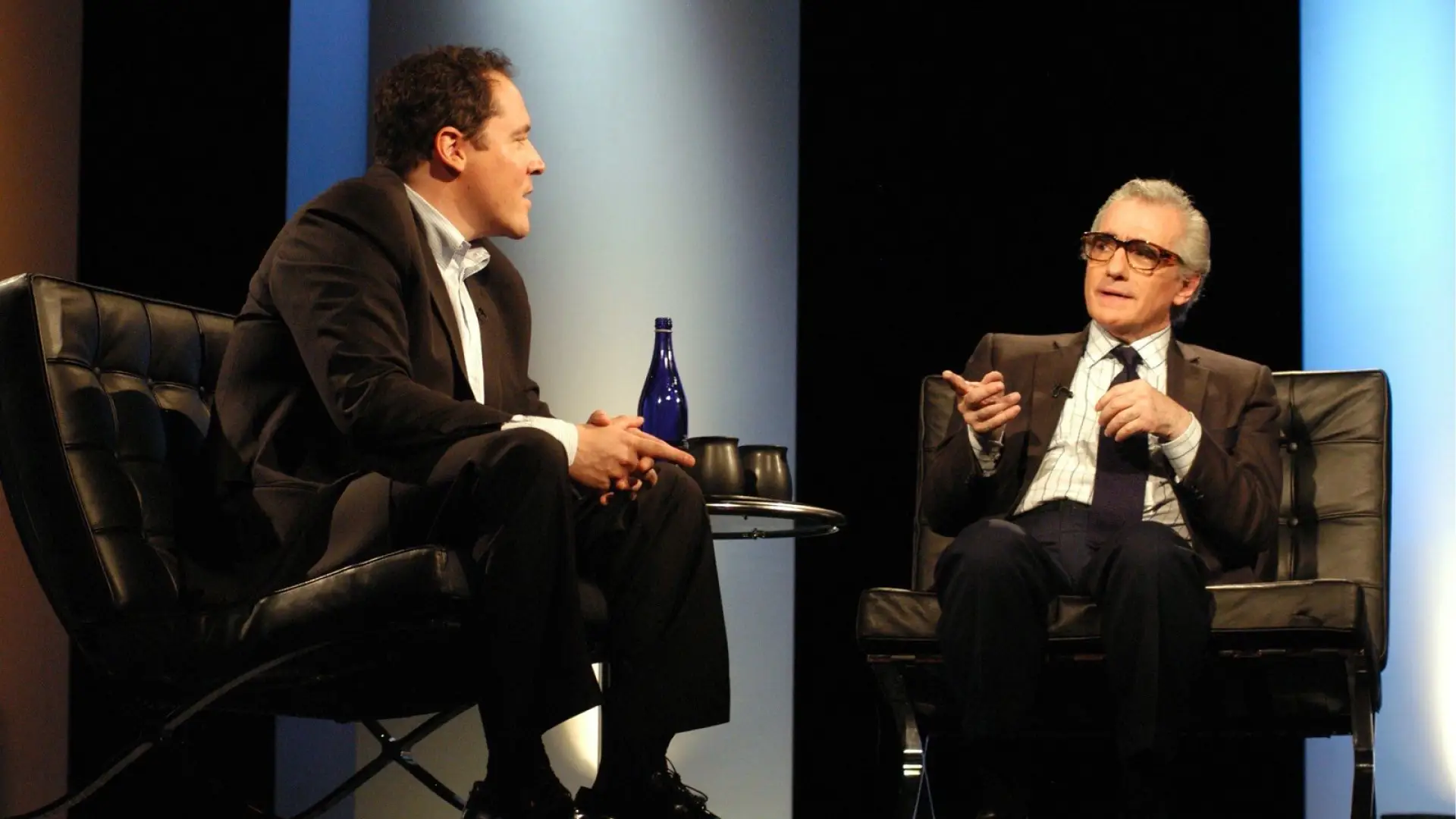
SA: How do you feel film and the region has inspired your craft? You have had a very long career and writers change over time, so where you are at the beginning I am sure is very different from where you are now as a writer.
RB: I have had a house up here for over 30 years, since 1987. Almost immediately the region — the place — inspired me, and my work took a swerve. The place became central to my work, with some short stories first and then the novel The Sweet Hereafter, which is set up here and then Cloudsplitter, which is based on the life of John Brown and a big chunk of that was set up here. So, it became a location for me and its history, its political life, its economic life, and the physical presence of the place really took over a big part of my work starting in 1987 or so.
I grew up in New Hampshire in the 1940s and I came here following my wife. Her family had been up here for generations, and so I came here because of a woman, which I guess there are worse reasons to go some place! But, I came here because of her and when I got here I realized this is so much like where I grew up and when I grew up in the 1940s. There was a quality of life and a physical presence to the place that was immediately familiar to me, and yet here it was very contemporary at the same time. This is not a lost-in-time place, but it brought me back to my childhood and it had a very salubrious, imaginative power for me and in my life, and therefore in my work.
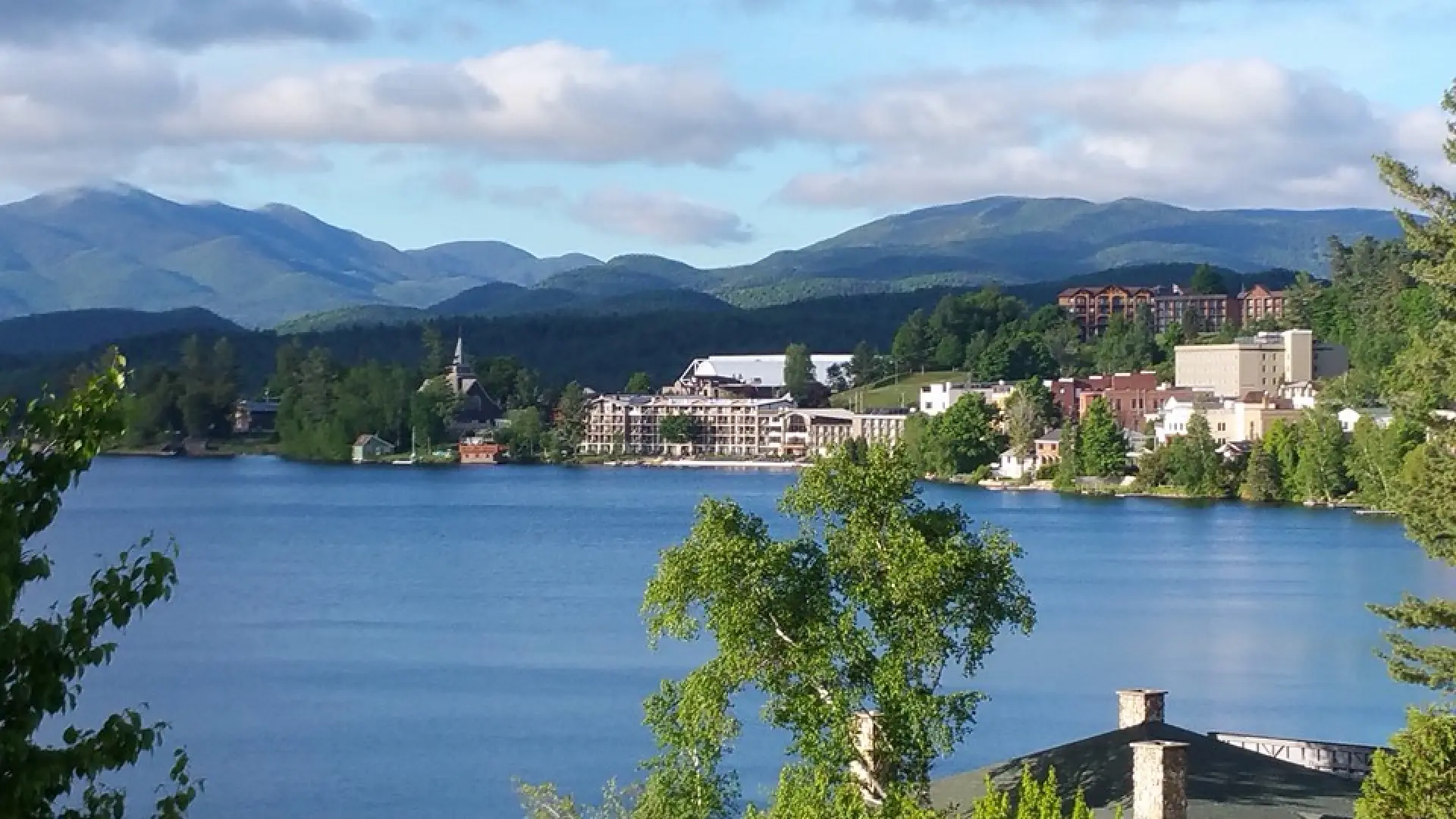
SA: Do you have movie recommendations for us today? What is something you are looking forward to watching?
RB: That’s an interesting and hard question to answer from up here. That’s one problem up here, and that’s one the film festival helps deal with. It’s very hard to see any films up here except for the two or three blockbuster films that come out from the major studios. If you like serious films, it’s hard. I’m waiting to see two films, both of which Willem Dafoe is in. One is called The Lighthouse. I can’t remember the name of the other one. One was at Cannes, and the other is about to come out. They look and sound fantastic, but I am going to have to wait until the fall, or until they show up streaming to see them.
That is a problem that is going on in the film industry right now. If you like independent films, artistic films — serious films is what I guess we call them — and you are not that interested in action movies or adaptations of Marvel comics and things like that, or animated films, then you have to travel or else you have to wait until you can stream it. But that’s an industry problem, not just a regional problem. It is a regional problem because it is an industry problem. If the Palace Theatre could show those films they would, and I wouldn’t have to wait to see them on my small screen. I could see it on the big screen. But, the way the industry is changing and the way it has over the last few years — and it will get even more radical over the next few years — it’s really hard to see serious, good films in any semi-rural or rural area of the country. I can’t even do that in Saratoga Springs. There isn’t an arthouse type theater in Saratoga. I have to go to New York, Boston, or Miami to see a serious film.
SA: The Palace is so great. It’s this small, old theater and it would be so perfect to have independent art films. I wonder if they have the capacity to show these films.
RB: But, also, they are restricted by the distributors. They can’t contract those films. There was a piece in The New York Times about a conflict regarding Martin Scorsese, actually, and his new film that has been financed by Netflix. He wants it seen on the big screen and Netflix is restricting that. The big screen distributors require or insist upon a 90 day — 3 months — screening time availability and Netflix won’t provide that so Scorsese is caught in the middle of a fight.
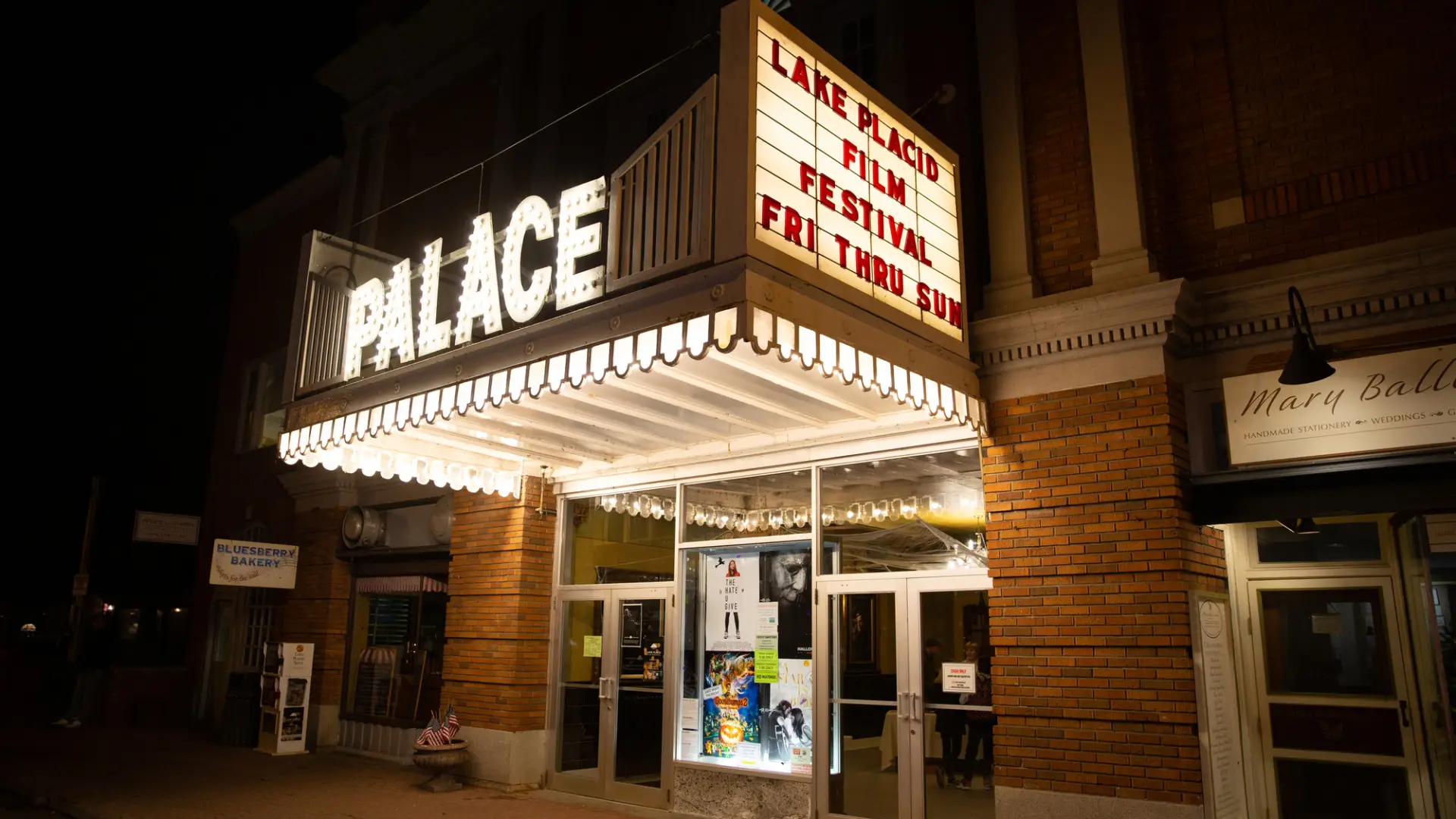
SA: I have been thinking about the significance of going to the theater, and many writers have written about how special it is to be inside a movie theater. I am reminded of Roland Barthes' essay on going to and leaving the movie theater. It’s a classic essay. It’s so special being inside a theater.
RB: Oh yeah! It’s a quasi-religious experience in a sense that you’re in a community but you’re alone at the same time. It’s communal and it’s private. There is nothing quite like it. It’s not the same if you are at home at your desk and looking at it on your iPad or whatever.
SA: Is there any last thing you’d like to share about the Lake Placid Film Festival? What should we know?
RB: One of the nicest things about working with these folks over the years is that it’s been a collaborative experience. We’ve all had different roles at different times, and it’s shifted over time. But, it’s an incredibly cooperative and collaborative group of people. It couldn’t have been done otherwise. It’s never been a one man or one woman show. It’s always been a group that’s put it together.
I work alone as a writer. I don’t work with other people, and it’s a very isolated kind of work. But, working with these folks on the Lake Placid Film Festival has really been extremely satisfying for me. It’s one of the few things that I do in collaboration with other people.
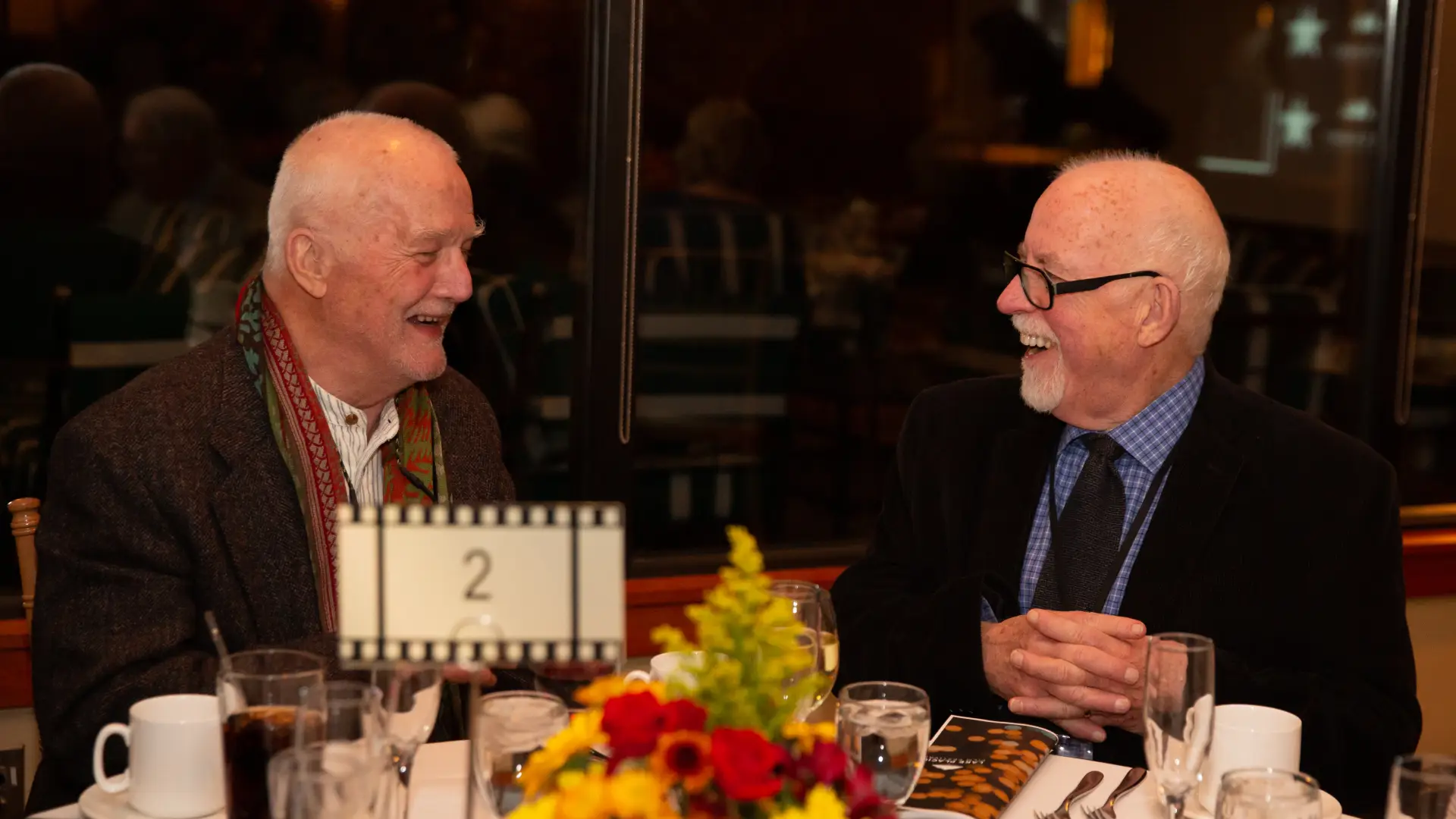
SA: The thing about writers and writing is that you do just have to be alone. There’s no way around it. You could have as many writing groups as you want, but in order to get the thing done you have to isolate yourself.
RB: Yes, nobody else can do it.
SA: I often joke with my friends that I wish I were a filmmaker or dancer, so that I could work with other people. There’s a reason I’m doing this, but I feel like the world of filmmaking is so special.
RB: It’s very seductive and compelling.
Don't miss the opportunity to see some great films on the big screen in Lake Placid. Start planning your trip today by finding the perfect lodging and perfect adventure to pair with the Lake Placid Film Festival.